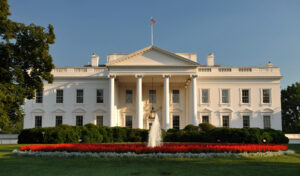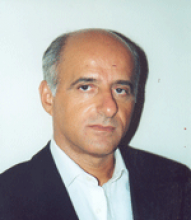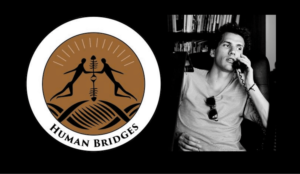Decision 2024: Neoliberal Fascism Or Neoliberal Business As Usual?

White House – Photo: whitehouse.gov
11-03-2024 ~ Trump’s rise the result of the ongoing erosion of the political culture in the U.S. under neoliberalism, which has essentially become the dictatorship of big financial capital.
With just a few days left until Election Day, the fact that the race to the White House between U.S. Vice President Kamala Harris and former President Donald Trump remains extremely tight is truly mind-boggling. Reason dictates that the Democrats should be set to win a landslide, but what could very well happen instead is the return of Donald Trump to the White House.
Unfortunately, there are some good reasons why this is a tightly fought election. First, the cold truth is that Kamala Harris is not an inspiring leader. What’s even worse is that she is a flip-flopper. She’s changed her position on fracking and on the infamous border wall (she is now against fracking natural gas bans and seems to be leaning in favor of building more border wall) and hasn’t done enough to explain her policy positions on several issues, including Medicare for All. Rational voters would not fail to take notice of such shortcomings in a presidential candidate.
Second, Kamala Harris represents a party that has lost the working class and is perceived as being one with the elites. Harris’ own campaign has been too focused on winning over wavering Republicans, preferring to share the stage with Liz Cheney and billionaire Mark Cuban over progressive icons like Sen. Bernie Sanders (I-Vt.) and Rep. Alexandria Ocasio- Cortez (D-N.Y.), and attacking Trump as a threat to democracy.
Both strategies appear to have backfired. First, because working-class people represent a much larger segment of the electorate than wavering Republicans, and because cozying up to anti-Trump Republicans and receiving the endorsement of the warmongering Cheneys has alienated progressives. Second, exhorting citizens to vote for the Harris-Walz ticket because Trump represents a threat to democracy isn’t making inroads with average folks who are mainly concerned with how to make ends meet. Most adult citizens have no confidence in U.S. institutions and in fact mistrust the electorate system, which is why millions of citizens do not bother to vote and the voter turnout in the U.S. trails that of many other Western countries. Read more
Which Countries Are On The Brink Of Going Nuclear?

John P. Ruehl – Independent Media Institute
10-31-2024 ~ Global nuclear tensions are rising, emboldening Iran’s ambitions and putting other nuclear-threshold nations on notice. As major powers posture, countries once cautious may now reconsider their restraint.
Following Israel’s October 26, 2024, attack on Iranian energy facilities, Iran vowed to respond with “all available tools,” sparking fears it could soon produce a nuclear weapon to pose a more credible threat. The country’s breakout time—the period required to develop a nuclear bomb—is now estimated in weeks, and Tehran could proceed with weaponization if it believes itself or its proxies are losing ground to Israel.
Iran isn’t the only nation advancing its nuclear capabilities in recent years. In 2019, the U.S. withdrew from the Intermediate-Range Nuclear Forces Treaty (INF), which banned intermediate-range land-based missiles, citing alleged Russian violations and China’s non-involvement. The U.S. is also modernizing its nuclear arsenal, with plans to deploy nuclear weapons in more NATO states and proposals to extend its nuclear umbrella to Taiwan.
Russia, too, has intensified its nuclear posture, expanding nuclear military drills and updating its nuclear policies on first use. In 2023, it suspended participation in the New START missile treaty, which limited U.S. and Russian deployed nuclear weapons and delivery systems, and stationed nuclear weapons in Belarus in 2024. Russia and China have also deepened their nuclear cooperation, setting China on a path to rapidly expand its arsenal, as nuclear security collaboration with the U.S. has steadily diminished over the past decade.
The breakdown of diplomacy and rising nuclear brinkmanship among major powers are heightening nuclear insecurity among themselves, but also risk spurring a new nuclear arms race. Alongside Iran, numerous countries maintain the technological infrastructure to quickly build nuclear weapons. Preventing nuclear proliferation would require significant collaboration among major powers, a prospect currently out of reach. Read more
The U.S. Southwest Offers Blueprints For The Future Of Wastewater Reuse
 10-31-2024 ~ Our existing water supplies could go further by turning wastewater into drinking water.
10-31-2024 ~ Our existing water supplies could go further by turning wastewater into drinking water.
No country is immune from water scarcity issues—not even wealthy countries like the United States.
Population growth and climate change are stretching America’s water supplies to the limit, and tapping new sources is becoming more difficult each year—in some cases, even impossible.
The Southwestern states, in particular, have faced “intense” droughts during the 21st century, and traditional water supplies are failing. As groundwater supplies in the region have depleted substantially, rainfall has decreased, and water import costs have risen substantially. According to a September 2022 Nature article about the water situation in the Southwest, there is a “very low chance for regional mega-reservoirs to regain full-capacity levels assuming current demand.”
The region looks to the Colorado River as its plumbing system, which currently provides drinking water to 1 in 10 Americans—all while irrigating nearly 5.5 million acres of land. But it’s also being stretched to its limits: Population growth and expansive development are increasing agricultural demands. Meanwhile, the pressure to ensure sufficient water is left in the environment to support ecosystems has accelerated. According to a December 2012 study by the U.S. Department of the Interior Bureau of Reclamation, the demands on the Colorado River are expected to exceed supply by 2040.
On top of this, each state has vastly different needs. For example, Nevada’s needs are largely urban, but Arizona and California require water for huge agricultural and urban sectors. Each year, states argue over who has the superior right to water supplies. And once they have their allocation, districts frequently end up in litigation over their allotment. There is always a shortage of water, raising questions about who is responsible and how best to mitigate the water crisis. Read more
BRICS Is Mounting A Challenge To The US-Led World Order — But For Whom?

C.J. Polychroniou
10-25-2024 ~ Brazil, Russia, India, China and South Africa held a summit to counter the unipolar power of the US and Europe.
The recently concluded 2024 BRICS (an acronym for the combined economies of Brazil, Russia, India, China and South Africa) summit, hosted by Russian President Vladimir Putin in Kazan and attended by scores of Global South leaders, including Chinese President Xi Jinping, Indian Prime Minister Narendra Modi, South African President Cyril Ramaphosa and Iranian President Masoud Pezeshkian, was the largest diplomatic forum in Russia since Putin ordered troops into Ukraine in 2022. With 36 countries attending, and more than 20 of them represented by heads of state, the three-day BRICS bloc of developing economies summit showed that Russia is anything but isolated on the global stage. The meeting highlighted the current geopolitical situation, the sanctions imposed by the United States on China, Russia and Iran, which all participants condemned as “unlawful,” and the need for an alternative payment system. The promotion and development of alternative financial instruments to gain greater independence from the dollar is perhaps the most important concern of the BRICS grouping. Yet no concrete resolutions were made at the 2024 BRICS summit.
Still, there is much more to be read into the 2024 BRICS summit than a big diplomatic win for Putin over Russia’s invasion into Ukraine, which is how most of the mainstream corporate media opted to frame the summit. First, since Putin’s rise to power, multipolarity has been a central focus of Russia’s foreign policy agenda, as it is seen as a counterweight to the global hegemony of the U.S. and its allies. Beijing’s emphasis under the leadership of Xi Jinping is also on building a multipolar world. And more and more countries in the Global South are looking to geopolitical alliances to escape influence and economic dependence on the United States and Europe. Read more
Why Is Prehistory Inspiring So Many Artists?

Yann Perreau – Human Bridges
10-25-2024 ~ What draws us to such a distant and long-gone time?
A fruitful relationship has always existed between prehistory (a scientific discipline constantly refreshed by new discoveries) and the visual artists who interpret it.
Prehistory is a modern idea. The word was “coined” only in the 1830s. Before the 19th century, we didn’t know much about dinosaurs or cavemen, and fossils remained a scientific curiosity. When French naturalist Georges-Louis Leclerc, Comte de Buffon published his notorious Histoire naturelle (1749–1788), suggesting that nature had a history and proposing the first reproduction theory, the faculty of theology at the Sorbonne University in France condemned it and threatened him with repercussions. He eventually had to publish a retraction.
Similarly, when Charles Darwin (1809–1882) published his On the Origin of Species (1859), his compatriots in the United Kingdom and Europe still believed that God made man “in his own image,” as stated in the Bible (Genesis 1:27). Anyone claiming that all animals came from the same origin, and apes were somehow our distant cousins, was considered a fool or a heretic.
Then the first caves were excavated revealing extensive and intricate artwork on their walls. In 1879, archeologist Marcelino Sanz de Sautuola explored a new cave in Altamira, northern Spain, and brought his young daughter, Maria, with him. She spotted vivid depictions of bison and masterfully painted scenes on the cave’s ceiling. These cave paintings were initially dismissed as forgeries, as scholars of the time, with the positivist mindset, could not imagine that people from the Paleolithic were sophisticated enough to produce such complex artworks. By the early 20th century, however, as archaeologists uncovered more ancient skeletons, bones, fossils, and early human art in caves and other sites, their discoveries started to raise curiosity beyond the scientific community. Writers, intellectuals, and the public were captivated by these glimpses into our distant past.
Artists were intrigued, sometimes amazed by the mind-blowing quality of parietal art, indecipherable, complex abstract shapes and objects, and what was perceived as scenes depicting animals and humans in rituals or sacrifices. The drawings, paintings, and etchings that endlessly decorated the walls, ceilings, and floors of caves in subtle colors were often mesmerizing. Picasso was particularly inspired by various prehistoric elements, as the 2023 exhibition No Past in Art: How Prehistory Inspired Picasso’s Work at the Musée de l’Homme in Paris showed. Gauguin, Cézanne, and later the symbolists and primitivists, also dedicated various paintings and sculptures to what they perceived as representations of our origins, rituals, and myths.
Prehistory has never stopped inspiring artists since then, captivating the most important modern art figures like Jean Arp, Giorgio de Chirico, Max Ernst, Alberto Giacometti, Paul Klee, Joan Miró; Joseph Beuys, Louise Bourgeois, Jean Dubuffet, Marguerite Duras, Barbara Hepworth, Yves Klein, and Robert Smithson. It continues to be an inspiration among our contemporaries, including Dove Allouche, Miquel Barceló, Tacita Dean, Marguerite Humeau, Pierre Huyghe, and Giuseppe Penone, to name just a few, whose works were showcased during the 2019 exhibition, Préhistoire, une énigme moderne (Prehistory, a Modern Enigma). Read more
COP16: It’s Wild-West Capitalism Versus Life On Earth
 10-23-2024 ~ The stakes for our collective future could not be higher, yet many decision-makers are doubling down on destructive policies.
10-23-2024 ~ The stakes for our collective future could not be higher, yet many decision-makers are doubling down on destructive policies.
All eyes should be on the salsa dancing capital of the world, Cali, Colombia, where representatives of 190 nations are joined by a broad swath of global civil society and international Indigenous delegations to participate in the United Nations Biodiversity Summit (aka COP16).
I’ve been struck that many people (even among those who generally track the larger annual climate COP process) are not familiar with the biannual biodiversity COP (conference of parties). This is a shame because the stakes for our collective future could not be higher: The Global Biodiversity Framework (GBF) is the most crucial official treaty among the world’s nations to halt the extinction crisis. Its implementation—COP16’s primary goal—is critical to striking a sustainable balance between human civilization and the natural world.
We know by now that we are in serious trouble: More than one million species face imminent extinction, entire ecosystems are unraveling, and the very fabric of Earth’s life support systems that we all depend on—for literally everything—is convulsing on the brink of collapse under an onslaught of reckless resource exploitation, toxic pollution, and corporate greed. We also know that decision-makers at the highest levels of government and business not only have their heads in the sand but are doubling down on the kinds of short-sighted, profit-at-all-costs Wild West capitalism that got us in this mess in the first place.
This is why it was such a big deal when, in 2022, at the conclusion of COP15 in Montreal, 196 nations adopted the historic GBF, an ambitious pact to halt the extinction crisis and begin to reverse the destruction of nature by 2030. Of course, the GBF is imperfect and insufficient. However, given the current state of world affairs, it firmly qualifies as better than nothing and even a good start—mainly because it is the best we’ve got going. Now, countries are meant to present their detailed plans in Cali to implement and pay for this noble commitment. Read more


